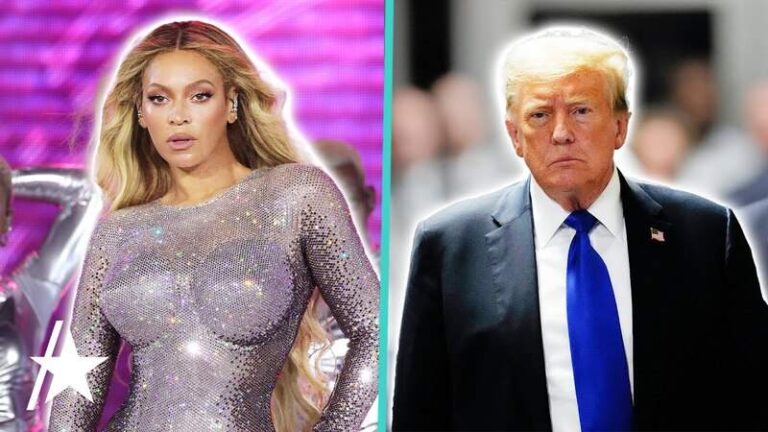In a surprising turn of events, Beyoncé has taken a bold stand against the Trump campaign for the unauthorized use of her powerful track, “Freedom.” The controversy erupted after Trump’s team used the song in a campaign video, prompting Beyoncé’s legal team to issue a cease-and-desist order. The video, which featured Trump disembarking from a plane, was soundtracked by the 2016 hit, sparking immediate backlash from the artist’s camp.
The song “Freedom,” which holds significant cultural and political weight, has been a central piece in Beyoncé’s discography, especially in the context of social justice. The track was originally featured on her highly praised album Lemonade and was a collaboration with Kendrick Lamar. Its use in a political context, particularly by a campaign that has been at odds with many of the values the song represents, was seen as a provocative move.
Beyoncé, known for her activism and support of progressive causes, was quick to act. Her legal team, alongside her record label, intervened to protect the song’s integrity. The Trump campaign, facing mounting pressure, eventually removed the video from all social media platforms.
This isn’t the first time a musician has clashed with the Trump campaign over unauthorized use of music. Artists like R.E.M., Neil Young, and The Rolling Stones have also taken legal action in the past. However, the Beyoncé incident is particularly noteworthy due to the song’s deep connection with social justice movements and its recent use by Democratic candidate Kamala Harris during her campaign.
Interestingly, Harris has been given the green light to use “Freedom” in her campaign, a clear sign of Beyoncé’s political leanings. The song has become a recurring anthem in Harris’s rallies and public appearances, reinforcing her message of equality and justice.
This legal battle highlights the ongoing tension between artists and political campaigns, particularly when the music used conveys messages that are at odds with the campaign’s platform. For Beyoncé, the use of her music by the Trump campaign crossed a line, leading to swift legal action to protect the song’s meaning and her own brand.
In the broader context of the 2024 election, this incident reflects the deep cultural divides and the power of music as a tool for political expression. As the campaign season heats up, it’s likely we’ll see more artists stepping up to defend their work from unauthorized use, especially when it comes to messages that they feel misrepresent their intent.
Beyoncé’s move not only protects her intellectual property but also sends a clear message: the misuse of her music, especially in ways that contradict its intended message, will not be tolerated.

